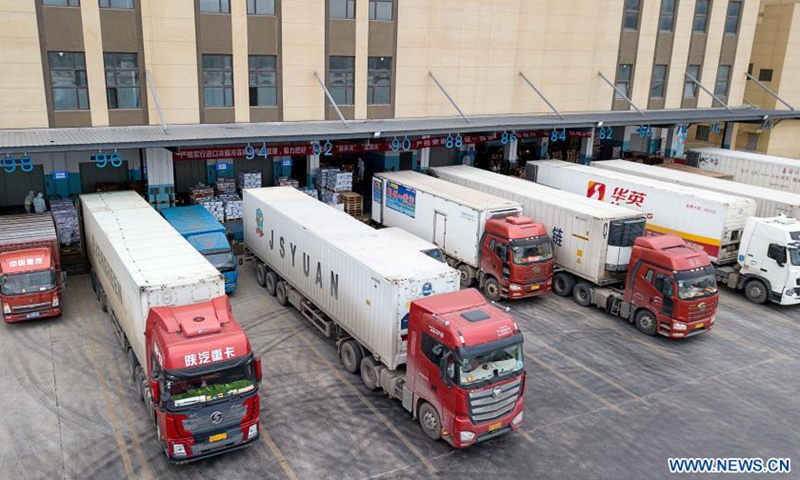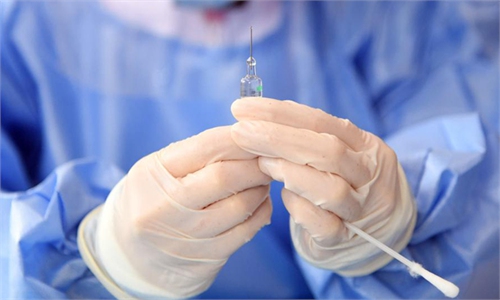Two cold-chain drivers detained for 10 days by Tibet police after fabricating nucleic acid test reports

Aerial photo taken on Jan. 7, 2021 shows imported cold chain food discharged at a regional cold chain center in Wuhan, capital of central China's Hubei Province.Photo:Xinhua
Two cold-chain drivers were recently given a ten-day detention by police in Lhasa of Southwest China's Tibet Autonomous Region for using fabricated COVID-19 nucleic acid test reports.
The drivers, surnamed Hou and Xiao, were intending to drive a batch of frozen pork to Lhasa, according to an announcement by Lhasa police on Tuesday.
But instead of taking nucleic acid tests, they bought fabricated reports, costing 150 yuan ($23.46) each, from another person, surnamed Liu on May 22, before heading to the city.
They were later detained by local police who received information from the public. The two chose to ignore China's regulations on providing travel history reports when coming from medium- and high-risk areas for COVID-19, the police said.
Fortunately, the frozen pork later tested negative for traces of COVID-19, the police said.
Lhasa police also reported Liu's illegal behavior of fabricating and selling nucleic acid reports to the authorities in the city Liu lives.
China has been taking stringent measures to crack down on offenses related to COVID-19 epidemic control. One confirmed case in Guangzhou of South China's Guangdong Province, hit hard by resurgence in COVID-19 cases recently, was put into criminal detention recently on suspicion of impeding the prevention and treatment of infectious diseases, the local authority announced Tuesday.
The patient did not truthfully inform medical staff of his travel and contact history, causing a large number of people to become close contacts and subject to isolation, leading to a serious risk of COVID-19 transmission, the authority said.

